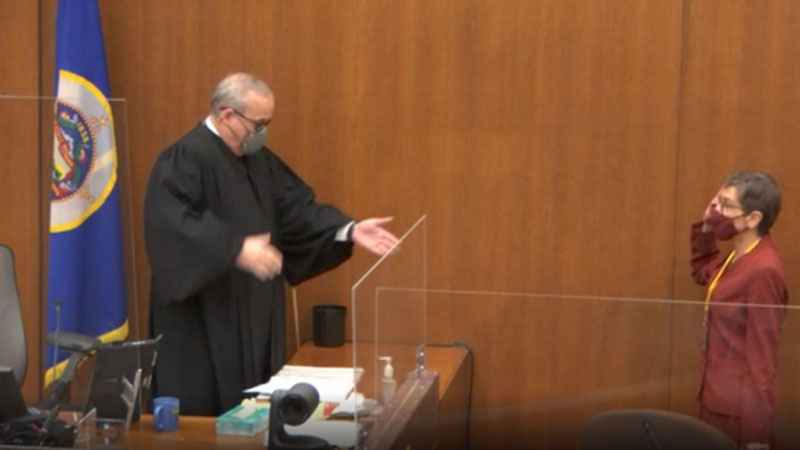Legal expert: Medical examiner’s testimony in Chauvin trial was helpful to both state and defense cases
[anvplayer video=”5020636″ station=”998122″]
Friday, forensic pathologist Dr. Lindsey Thomas and Chief Hennepin County Medical Examiner Dr. Andrew Baker were the only two witnesses to testify in the trial against former Minneapolis police officer Derek Chauvin.
Baker reaffirmed his determination of the cause of death.
“That’s cardiopulmonary arrest complicating law enforcement subdual restraint and neck compression,” Baker said. “That was my top line then and it will stay my top line now.”
Baker also testified he still believes Floyd’s death was a homicide and explained to the jury it’s a medical term that means another person was involved in the death.
He walked through the five manners of death and testified an overdose would be an accidental death.

[KSTP]
Medical examiner, forensic pathologist blame police pressure for George Floyd’s death
Baker explained how the officers’ restraint caused Floyd’s lungs and heart to stop working.
“He already has a heart that needed more oxygen than a normal heart by virtue of its size, and it’s limited in its ability to step up to provide more oxygen when there’s more demand because of the narrowing of his coronary arteries,” Baker said. “The law enforcement subdual restraint and the neck compression was just more than Mr. Floyd could take by virtue of those heart conditions.”
Chauvin’s attorney Eric Nelson used his cross-examination to push forward his case.
Nelson asked, “In terms of the placement of Mr. Chauvin’s knee, would that anatomically cut off Mr. Floyd’s airway?”
Baker replied, “In my opinion, it would not.”
Nelson also asked, “In your opinion, both the heart disease, as well as the history of hypertension, and the drugs in his system played a role in Mr. Floyd’s death?”
Baker responded, "In my opinion, yes."
But the state was quick to rebut. Baker told prosecutor Jerry Blackwell that those were contributing causes, not the direct cause. Baker also told prosecutors he still classifies Floyd’s death as a homicide.
Read full State vs. Chauvin coverage
“I imagine Dr. Baker’s testimony went quite a bit like they expected, which is it helped in certain areas but it would not alone have been enough to prove their case,” said Rachel Moran, an associate law professor at the University of St. Thomas.
Moran said both the state and defense got something out of Baker’s testimony.
“What he did for the state was confidently say that the cause of death was homicide, specifically Mr. Floyd died because he was being restrained by the police and as a result, his heart and lungs gave out,” Moran said. “Where Dr. Baker did not necessarily help the state is he said there is no specific evidence in the autopsy of asphyxiation.”
Prosecutors called Thomas to the stand on Friday morning. She is semi-retired, having previously worked in the Hennepin County Medical Examiner’s Office. At one point Thomas was one of Baker’s teachers.
She told jurors she agrees with him on his determination of what caused Floyd’s death.
Thomas went further than he did, however, by agreeing with the testimony from medical experts earlier this week.
“In this case, I believe the primary mechanism of death is asphyxia or low oxygen," Thomas said. “There is no evidence to suggest he would’ve died that night except for the interactions with law enforcement.”
Moran said that testimony will help the state, however, the defense also made headway with Baker’s statements on Floyd’s vulnerability.
“If the jury believes the state’s witnesses, finds them credible and, of course, without knowing what Mr. Nelson will present for the defense, if anything, the state has done a pretty clear job of proving their case,” Moran said. “The real question is how will the defense will combat this and how reckless or how indifferent do the jurors think Derek Chauvin was being.”